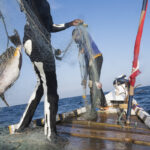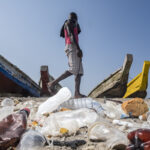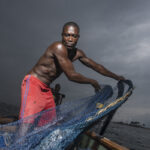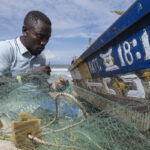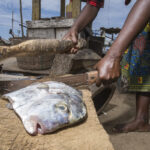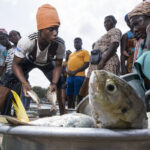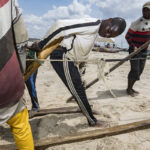Dan Fenstermacher
Food Chain
Every day the fisherman from the seaside towns of Prampram, Cape Coast, and Ada, Ghana, head out to sea where they fish up to 40 kilometers offshore. For generations families of these communities have fished the Atlantic Ocean. What they catch will determine the livelihood of the community and their families. Rising early to fight with the breakers, and after a pause for prayer, the 10-hour workday ensues. Back on land the selling, cleaning, and cooking of the fish is a lively affair. Working hand to mouth, the fish are sold and taken in baskets by families and prepared for frying in oil for the night’s dinner. Some days there are barely any fish from the day’s work. To make matters worse, due to overfishing by many big fleets from China there is a depleted supply of fish. Millions of dollars per year are reported to be taken from the Ghana economy by overfishing from foreign countries. Because of this the government of Ghana has implemented an annual one-month fishing ban on local fisherman. Many do not know how they will make a living for the length of this ban, and fish illegally risking fines in order to feed themselves. With supplies of fish dwindling and the broken food chain as a result, these communities have little to fall back on, and the future of the Ghanaian fishing occupation is in danger of being inundated.


